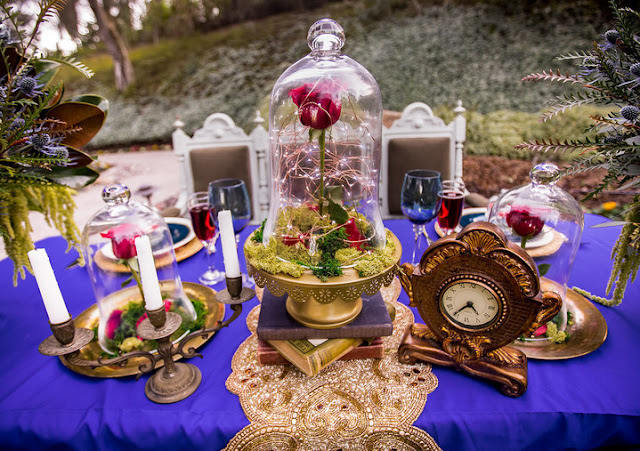In a longer post I'm working on, about the revelation that LeFou is struggling with his sexuality, I make a comment about how this adaptation (more specifically, I think, how director Bill Condon) is letting the actors mold their characters and bring a certain depth to them that's lacking in the 1991 animated version (as well as in the original fairy tale -- which is, after all, to be expected, as fairy tales are allegorical stories so character depth and development isn't a thing).
I love the 1991 animated version -- specifically, I love the music -- but I've always been fairly open about it doesn't hold up too well under my adult-lens (not even my Disney scholar lens!). I mean, I've got questions:
Where is Belle's mom? Do the townspeople know about the Beast and the castle -- or, at least, the prince and the castle (a royal family seems a hard thing to NOT know about)? Where does Chip come from?!
And, perhaps most relevant to this post --
why does everyone LOVE Gaston? I mean, the entire town basically does everything he says and hero-worships him. I get that in most Disney movies, he'd be the hero/love-interest. I get that, for the most part, he doesn't even really do anything evil. (FOR THE MOST PART. Yes, throwing an innocent man into an insane asylum just to blackmail his daughter into marrying you is pretty despicable. But really, the guy just wants to go kill an evil monster that did, admittedly, imprison two innocent people.) I get that he's supposed to be the pinnacle of hyper-masculinity: strong, athletic, good-looking, a pioneer in the field of interior decorating, single-handedly keeping egg-sellers in business...but.
But the guy's kinda of a jerk -- even to LeFou, his best friend. So why does everyone adore him?
Luckily,
Entertainment Weekly recently interviewed Luke Evans, publishing an article titled, "
Luke Evan's Backstory for Gaston is a Beauty" (pun intended, I'm assuming). AND you can read it online.
In a nutshell,
"Evans paints Gaston as a broken man devolving into monstrosity, transforming in counterpoint to the actual titular Beast’s evolution towards civility; more than this, the actor’s take on the burly villain comes loaded with a heavy history and more gravitas than one might expect of the one-dimensional (albeit six-abbed) antagonist."
The parallel in the two, male, main characters' journeys has always been apparent to people who look at the film with a critical eye -- the question has always been, "
Who's the real beast?" But.
(More excerpts from the interview and my thoughts below the cut because, hi. I'm wordy and have lots of opinions.)






